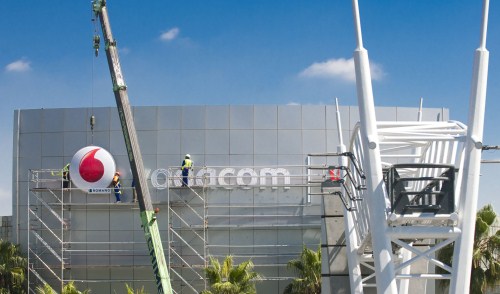
Competitors seeking access to Telkom’s “last mile” of copper cables into homes and businesses should be able to choose the model they want to use to gain access to the infrastructure.
That’s the view of cellular network operator Vodacom, which was presenting its views to the council of the Independent Communications Authority of SA (Icasa) at its public hearings into local-loop unbundling on Tuesday.
Vodacom’s managing executive for regulatory affairs, Pakamile Pongwana, said the operator supported Icasa’s intention of unbundling the fixed-line local loop and said the authority should use existing “facilities-leasing” regulations to achieve this objective.
However, like MTN, which presented earlier in the day, Vodacom said these regulations could not be used to regulate wireless services. It also said the regulations could not be used to introduce “bitstream” access, one of the unbundling models proposed by Icasa in an earlier discussion document.
Pongwana said supplementary regulations would be needed to govern the unbundling process, such as for managing “co-location” of telecoms infrastructure, the provision of electricity, access arrangements to shared infrastructure and transmission between telephone exchange cabinets and Internet service providers. If price controls were to be imposed, a separate market review process would be needed, Pongwana said.
He said “access seekers” (Telkom’s rivals) should be able to choose any method for access. Icasa has proposed four models for unbundling the local loop (see article), ranging from a light-touch approach to full unbundling.
Vodacom also called for an audit of all fixed-line infrastructure in SA to determine the viability of the network for Telkom’s rivals.
In addition, a regulatory impact assessment was “required to determine the impact of local-loop unbundling” on both the industry and on consumers. “What are the costs, benefits and risks associated with unbundling the local loop?” says Pongwana. “This should address possible unintended consequences and whether the authority’s set objectives will be achieved.”
At Tuesday’s presentation, Vodacom also bemoaned the time it has taken for local-loop unbundling policies and regulations to be introduced. “The issue of unbundling has been there since as early as the early 2000s and is only now being implemented, 10 years later,” Pongwana said. “That policy lag has its own impact. Isn’t it possible there are other methods to be applied in order to address [Icasa’s] objectives?”
In its forthcoming presentation to Icasa on Wednesday, Telkom is expected to make a case against unbundling given its “access line deficit”, whereby it loses money on fixed-line subscriptions before products like voice and data are sold on top of them.
Vodacom said it was not willing to contribute to any recovery of the access deficit. “Should [it be found] there is an access line deficit, the authority should explore alternative methods for its recovery,” Pongwana said. — Duncan McLeod, TechCentral
- Subscribe to our free daily newsletter
- Follow us on Twitter or on Facebook
- Visit our sister website, SportsCentral (still in beta)

